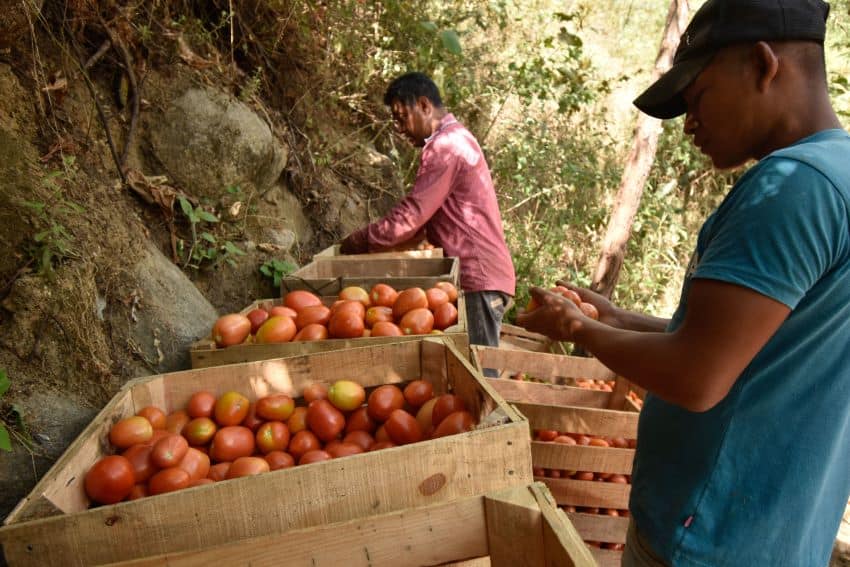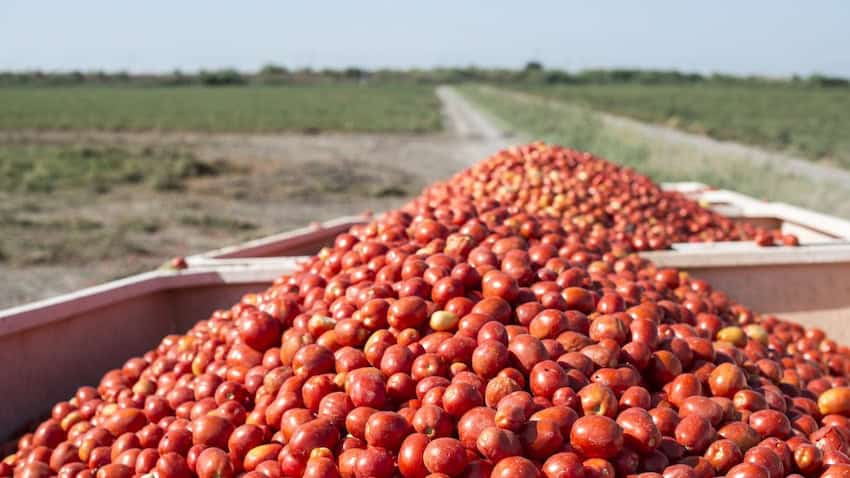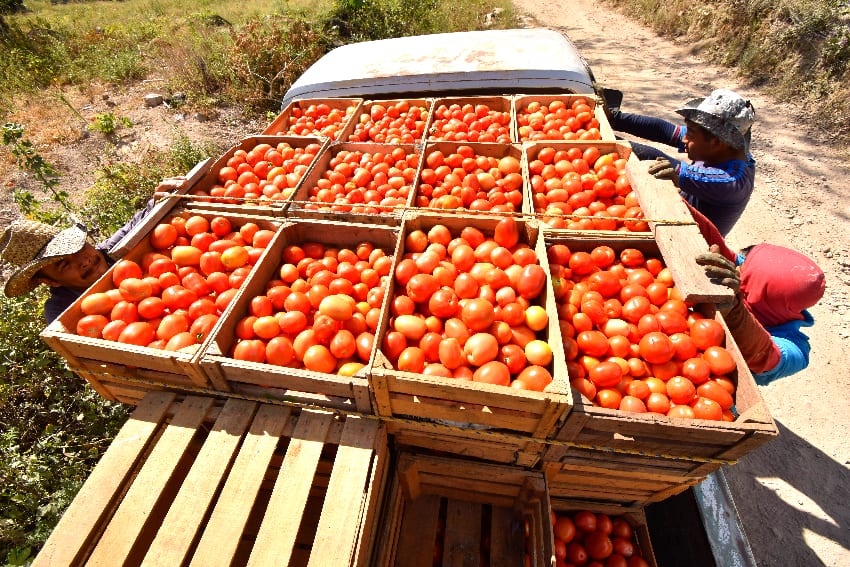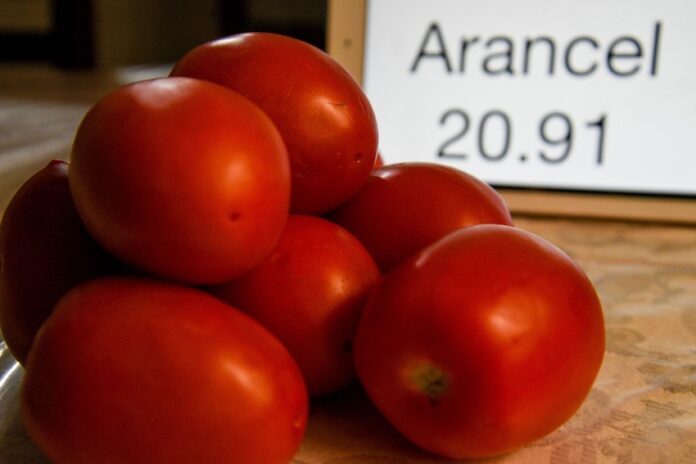With a U.S. levy on imported Mexican tomatoes set to start in mid-July, Mexico’s growers are lobbying intensely against a measure they say would harm both countries, joining forces with U.S. partners and President Claudia Sheinbaum’s administration
One grower acknowledged it’s an uphill fight.

“It’s very difficult to negotiate with someone who shows no interest in negotiating,” said Walberto Solorio, president of the Baja California Agricultural Council, a group that represents 120 tomato growers in the states of Baja California and Baja California Sur. “We are going to keep knocking on the door. We are not giving up,” he added.
Solorio was among a group of Mexican tomato exporters who met in Washington, D.C. last week with Mexican Agriculture Minister Julio Berdegué, alongside U.S. buyers, distributors and retailers who oppose the U.S. import fee. Berdegué also lobbied members of Congress and met with U.S. Secretary of Agriculture Brooke Rollins, saying the exchange was “extremely cordial and productive,” but not offering specifics.
Mexican tomato growers are facing a 17.09% “anti-dumping” duty at the U.S. border starting on July 14, following an announcement last month by the U.S. Department of Commerce that it is withdrawing from the Tomato Suspension Agreement. The accord with Mexican growers has exempted Mexican fresh tomatoes from being subject to a levy at the U.S. border since 1996, provided that the growers agree to quality inspections and pricing rules.
The stakes are high for Mexican farmers, as more than half the country’s tomato crop is exported to the United States, according to the Economy Ministry. That’s a value of more than US $3 billion. Mexico’s tomato exports have risen sharply in recent years with the expansion of Mexico’s greenhouse production — and today, the country supplies close to seven out of 10 fresh tomatoes consumed in the United States.
“We’re looking at all alternatives, diplomatic, economic, political,” Solorio said in an interview after returning to Baja California. His family-owned Heirloom Farms, located south of the Pacific port city of Ensenada, specializes in a variety of tomatoes for the export market, including cherry, baby heirloom and vine-ripe varieties.

Mexican President Claudia Sheinbaum has said her government could retaliate for U.S. duties on Mexican tomatoes by imposing duties on imports of chicken and pork legs from the United States.
The dispute over Mexican tomato imports has been around for years, led by the Florida-based growers group, Florida Tomato Exchange, which accuses Mexican farmers of taking advantage of lower labor costs and selling at below U.S. market prices, a practice known as “dumping.”
In announcing its withdrawal from the suspension agreement, the U.S. Department of Commerce said that “this action will allow U.S. tomato growers to compete fairly in the marketplace.”
According to reporting by the Associated Press, California and Florida are the United States’ biggest growers of tomatoes, but California’s tomatoes mainly go into processed tomato foods like sauces. Florida is Mexico’s main competitor for producing fresh tomatoes.
Since the announcement, companies on both sides of the border have spoken up against the duty, saying they have played by the rules set by the Tomato Suspension Agreement. Many growers in Mexico are closely connected to U.S. companies, which provide plants and technical support and purchase the tomatoes.
Opponents of the import fee on both sides of the border say it would lead to higher prices for U.S. consumers and leave them fewer choices of varieties. The measure also threatens jobs on both sides of the border, they say. A recent study by Texas A&M University reported that nearly 47,000 full- and part-time and U.S. jobs are supported by Mexican tomato exports.
Florida farmers can’t compete because “they lack the technology, the water, the climate, the workforce; they have many disadvantages, but they don’t see it that way,” Solorio said.
According to reporting by the horticulture industry media outlet HortiDaily, Florida’s tomato industry has seen a decline since the 1990s with the implementation of the North American Free Trade Agreement (NAFTA). HortiDaily reported that tomato grower acreage in the state has fallen from just over 25,000 hectares in 1990 to around 9,000 acres today, in part because Mexican growers responded at the time with major investment in greenhouse technology, allowing them to grow specialty tomatoes, whereas Florida’s industry traditionally has grown mainly round tomatoes.
The new levy would force up retail prices “because it’s practically impossible for the producer to absorb such a high percentage,” Solorio said.
The states of Baja California and Baja California Sur account for about 11% of the national output, Solorio said, with clusters of growers in the communities of San Quintín, Vizcaino and La Paz.

In Baja California, 80% of the tomato crop is exported, according to the state’s Agriculture Ministry. Most of those exports are sent to California, and from there, a portion is sent to other parts of the United States.
Baja California’s largest tomato-producing region is San Quintin, a rural community located some 150 miles from the California border. The region has been an export agricultural zone for decades. An import fee would be a big blow — not just for growers but for the region’s overall economy, which has struggled due to a number of factors, including government regulations and water scarcity.
The peninsula’s isolation from the mainland makes its growers particularly vulnerable, he said, as “the national market for us is not an option” due to distance and shipping costs. Growers could disappear or “would be forced to move to a different product, and that takes time, investment and a learning curve,” Solorio said.
Sandra Dibble is a San Diego-based freelance journalist.
